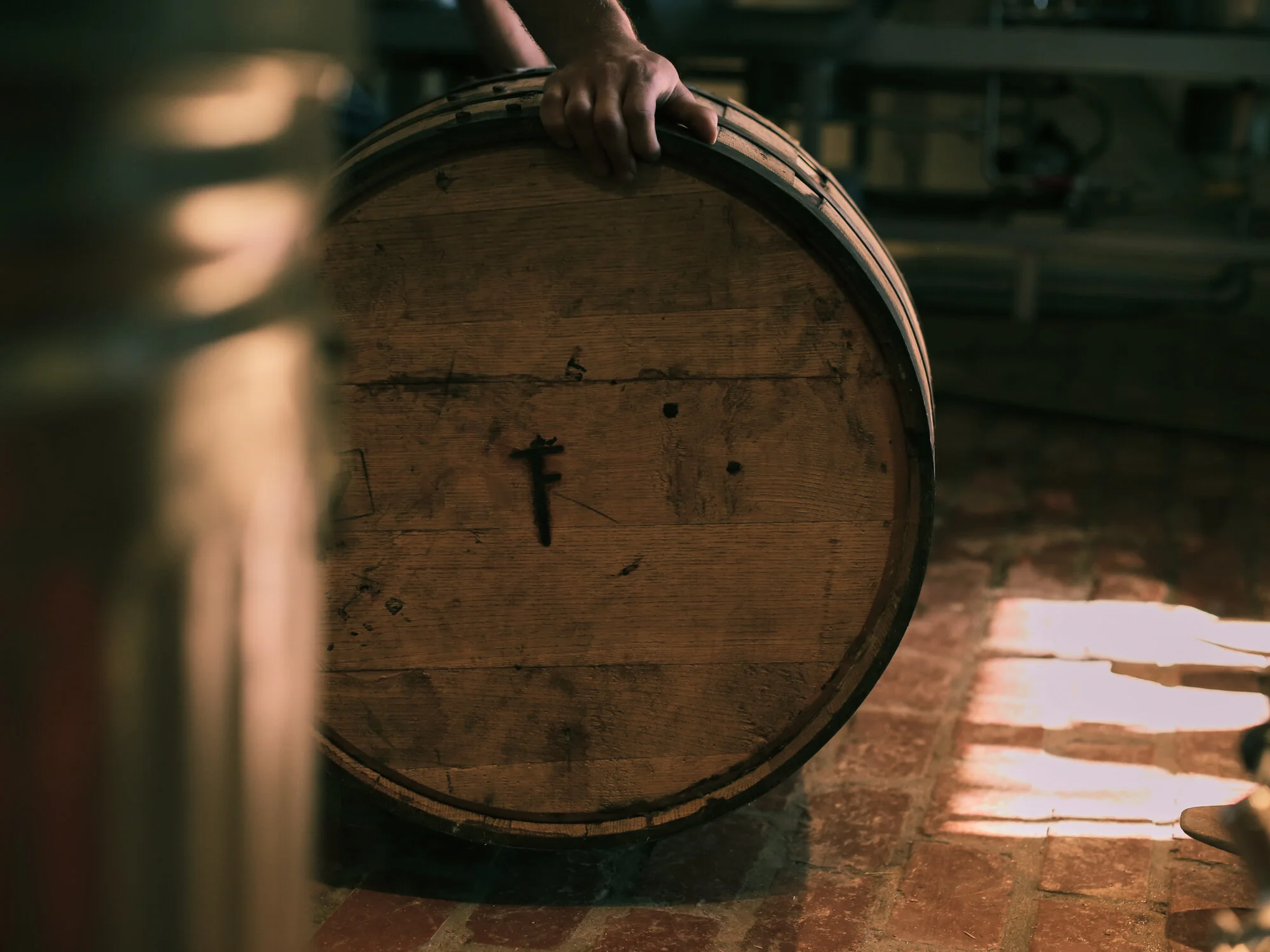WE ARE MAKERS
Hugh transferring a barrel from the brewery after bottling.
We believe in deliberate stewardship and the preservation and propagation of the natural resources found on the property. We take great pride in utilizing the abundant natural resources found on the property. At Towerhouse Farm Brewery, our focus is on creating exquisite craft beer.
high quality ingredients
Our ingredients are cultivated fresh from the natural resources found on the farm, thus uniquely tying our beer to the land. Since beer is 95% water, we use only pure, naturally-filtered water pumped from aquifers found beneath the property.
FARM-TO-GLASS
At Towerhouse Farm Brewery, one of our long term goal is to create a 100% born-and-raised farm to table beverage. We plan to grow and harvest every ingredient from the soil of the farm: yeast, water, hops, malt, and spices. In the Spring of 2020 we completed an 80-plant hop farm capable of producing hundreds of pounds of fresh Georgia grown hops. Additionally, Barley was planted in the winter of 2020 to test the viability of grain production on our farm. We hope to produce and enjoy some of the worlds greatest beers. Join us on this venture. See more on our page about Agriculture.
Small Scale ARTISANAL
Our farm brewery, housed in a repurposed tobacco barn, is designed for the merging of old-world traditions and flavors with new-world brewing technology. Each of our 56-gallon brewhouse kettles can brew 125 pounds of grain and 48 oz of hops to produce 200 magnum bottles worth of delightful Belgian beer.
The advantage of working at a small scale means that we can micro-focus on every step of the brewing process and ensure the finest quality product. Due to the small size of the kettles, every batch will differ slightly from one another, thus allowing us to produce a diverse portfolio of limited-run batches.
barrel conditioned Beer
We think that barrel-aged beer should be fun, delicious, and celebrated. Barrel-aged beer, simply put, is a malt beverage that has been aged in American or French oak casks for a span of 6 to 12 months. Often, these casks are previously used by wineries or distilleries. Each barrel, depending on its past life, will bestow many unique flavors upon the beer.
Our main focus is to produce a beer that every consumer can share and enjoy with family and friends. Often, we see barrel-aged beverages in the marketplace that are tough to palate for an entry-level beer connoisseur. Through our thoughtful observation, we have found some brands of barrel-aged beer to be too thick and potent; we want to change this. We aim to create a more delicate, medium-bodied, barrel-aged beer that everyone can sip on.
That being said, there are some inherent design challenges that we must face in our barrel aging process.
(1) Consistency: Every wooden barrel is unique, and hosts a different family of yeast and microorganisms; therefore, even two of the same beers placed in different casks can produce a dramatically different final product.
(2) proof/flavor: For a beer to stand up to the natural bacteria and microorganisms in the barrel, it must be brewed to a higher ABV.
With these two factors in mind, we utilize traditional Belgian style beer production. This style of brewing uses unrefined sugar to take place of 30% of the grain bill. This allows brewers to raise the ABV while keeping the beer at a medium body. This also means that the beer gains the delicate flavor of unrefined sugar such as sorghum, demerara, or turbinate.
During fermentation, yeast converts the simple sugars of the malt and demerara into alcohol and CO2. We allow this process to finish up as long as needed. Typically we allow the yeast to ferment longer than necessary to allow the beverage to become as dry and unsweet as possible.
After the sugar is burned off we are left with a delicious blend of malt and molasses character which will then be aged in a wooden barrel. We sample the barreled beer periodically to ensure it is pulled at its peak flavor. Finally, we siphon it out of its cask and into champagne bottles to re-ferment and carbonate. This critical step is known as bottle conditioning, a process that adds light carbonation and further depth of flavor to the final product.




